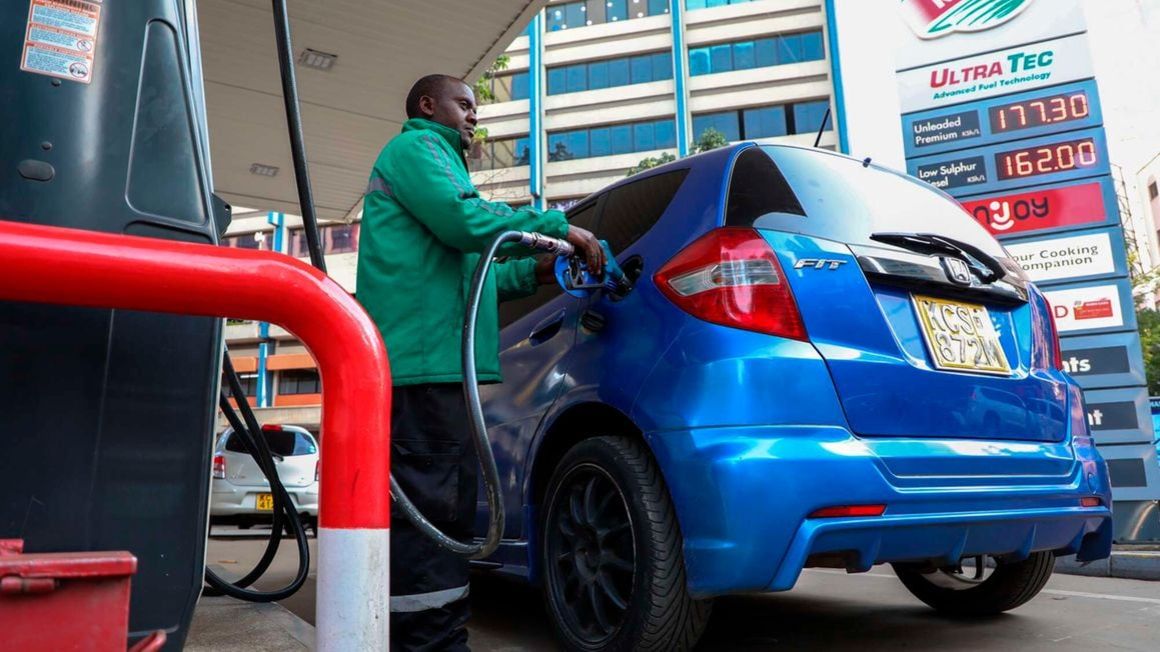
Customer attendant at Rubis Petroleum Station on Koinange Street Nairobi. FILE PHOTO | DENNIS ONSONGO | NMG
A plan to drop the current fuel import plan through an open tender in favour of a government-to-government deal has exposed consumers to expensive fuel in the coming months after it failed to materialise on time.
Correspondence between the Energy and Petroleum Regulatory Authority (Epra) and the parent ministry shows that the regulator was banking on the plan to make the next purchase, but its delay has forced it to go back to the old process, which will come at an extra cost.
The Epra warns that the oil marketer that will now win the tender to import fuel will be exposed to high insurance and freight charges due to limited timelines, and high costs that will ultimately be passed to consumers.
“Planned importation of petroleum through a government-to-government arrangement is yet to be concluded and this has delayed tender calls for March 2023,” says the Epra in a letter to the State Department of Petroleum dated January 31, 2023.
“Epra further notes that the delay has occasioned very tight import timelines, which if no action is immediately taken, may result in high rates of cargo premiums and freight. As a result pump prices would be negatively impacted.”
Read: New regulations to allow State direct oil imports
This means that consumers are staring at higher pump prices due to the delayed issuance of the open tender for the importation of fuel to be sold in the March-April pricing monthly cycle.
The hitches have been attributed to delays in passing regulations to support government-to-government deals on fuel importation, prompting Epra to call for speeding up the process to avert a looming rise in pump prices next month.
A litre of super and diesel is retailing at Sh177.30 and Sh162 respectively in Nairobi for the pricing cycle that lapses on the 14th of this month.
The State published regulations to support government-to-government deals on fuel importation in December in a push aimed at enabling negotiation for discounts on product cost and freight besides allowing Kenya to access extended credit periods from suppliers.
The Petroleum (Importation) Regulations, 2022 are aimed at enforcing provisions of the Open Tender System to ensure that petroleum products are imported into the country most cost-effectively.
Delays in awarding the tender to import 255,000 tonnes each for super and diesel look set to deny the firm that will win the tender the chance of negotiating for low insurance and freight charges.
The higher insurance and freight costs will be passed on to consumers in the form of higher pump prices, highlighting the adverse impact of the delayed tendering.
Oil marketers have in the past hoarded fuel due to anticipation of higher pump prices and product stock-out, forcing consumers to pay higher for fuel above the rates gazetted by the Epra.
Under the Open Tender System, the lowest bidding oil marketer is awarded the tender to import fuel for the country.
Other oil dealers then buy the products from the tenderer at set prices and then sell them in the retail and wholesale markets.
The import plan from Epra shows that the first 85,000 metric tonnes of super should be imported between March 2-4 followed by the second batch of similar quantity between March 15-17 and the last cargo between March 27-29.
Diesel should be shipped in three batches with the first cargo of 85,000 metric tonnes on March 8-10, the second batch of similar quantity on March 17-19 and the last batch between March 29-31.
Read: Trade deficit widens on fuel, cooking oil imports surge
Supplycor Kenya Limited — the oil marketers’ supply coordination secretariat — had in an earlier letter appealed to the State Department of Petroleum to approve the import plan in a bid to ensure no stock interruptions.
→ jmutua@ke.nationmedia.com




No comments :
Post a Comment